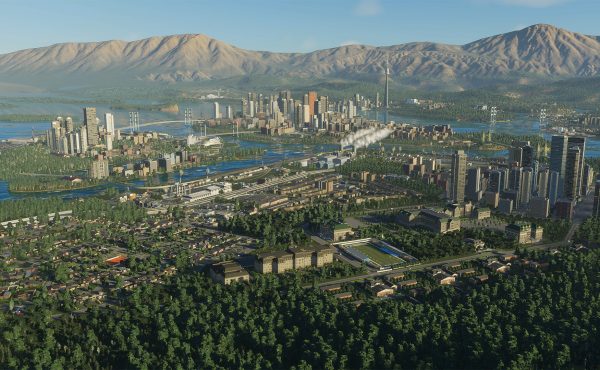EDITOR’S NOTE: Long-time supporter of Spacing, Robert Ouellette, wants residents of Canadian cities to take part in his new project called MESH Cities.
![]()
Whether they knew it or not, anyone who followed Toronto’s Port Land debacle over the last few weeks got a first-hand introduction to the power MESH Cities have to shape our communities.
Let me explain.
We’ve been hearing a lot about so-called “smart” cities in the news recently as the major computing and infrastructure players like IBM, Cisco, GE, and Siemens look at the next frontier in the trend towards ubiquitous computing. That new frontier is our cities.
Whatever you might think about a computer-driven modernity, MESH Cities are not just smart cities. MESH Cities go beyond the management of infrastructure to the heart of what makes cities worthwhile—their livability. Metaphorically, MESH Cities are the offspring of an improbable marriage between Jane Jacobs’ ideals and ubiquitous city computing.
Their kids, in this context, are named MESH: M=Mobile, E=Efficient, S=Subtle, H=Heuristics
This is how the www.meshcities.com website introduces the concept.
Cities are now home to more than fifty percent of the world’s people. To accommodate increasing urban populations designers are inventing new ways for cities to do more with less—less energy and less waste, but also more personalization. Fortunately, new, Internet-based technologies allow for real-time management of city systems in ways never before possible. The technological foundations today’s “MESH” cities are built on improve their efficiency. At the same time wireless feedback and information management systems make big cities as responsive to real-time, individual needs as the towns our grandparents grew up in.
Back to the Port Lands. An early manifestation of that wired city responsiveness played itself out across the Toronto body politic last week. Before our new MESH City resilience, what Doug Ford proposed might just have had wings. Show some slick eye-candy, add a Ferris wheel, and you are more than half way to building out the next Jamestown even if the public senses it is not in their long-term interest.
What the forces behind the plan did not understand is that in today’s modern, wired cities there is a bottom-up feedback loop that cannot be ignored. Informed people are connected, and they want to be listened to. When they’re not, well, I would not want to be the mayor or councillor who ignored them come the next election cycle.
Contribute your encounters with MESH Cities. Please go to maps.meshcities.com and select “Report.”




9 comments
I am confused here.Is the author crediting his project for the portland “victory”, or just the technologies in general. If the former, I don’t really see any specifics in the article to justify the claim; if the latter, then by mixing the technologies with a specific project, this article feels like a not-so-ethical self-promotion.
But will MESH Cities survive four more years of the Fords? That would be an achievement. Good posting though. There is hope.
The idea of wired information sharing to improve cities is something Jacobs probably would have liked.
Great post, Robert. The Port Lands issue is a good example of the new MESH city if fleshed out a little more. Maybe that’s an idea for the future – aside from the map people could identify ‘moments’ in a city’s recent history where MESH behaviours were exhibited with other users allowed to comment and critique the observation. Critieria could include instances of mobility, efficiency (economy), subtlety, and experience-based techniques for problem solving, learning, and discovery. 🙂
An exciting community of inquiry and practice is emerging in Toronto and elsewhere. An exciting time to be urbanist. I mean Purba 2011 just took place. A first!
http://purba.mit.edu/
Can’t wait to give a public talk on urban informatics? Give this title generator a try!
http://www.activesocialplastic.com/urbancomputing/index.html
Yu, I don’t see this so much as promoting a project, as promoting a concept. MESH is, as I see it, a way of looking at something that is already out there, growing organically, that would be there whether or not someone had coined a term for it.
So, Tom, MESH cities will certainly survive the Fords, because it doesn’t have anything to do with any specific individuals. It’s the way our world is developing.
Further to my above comment, I realize that MESH is indeed a project …
Fantastic for us urban nerds.
Yes, the Port Lands fiasco was a great example of “Mesh”-like strategies working. There was loads of online organizing and info sharing that made it very easy to effect change at city hall.
It will be interesting to see the commentary from the portlands “winners” in a few years if Toronto real estate is in a bubble right now and this is in fact the perfect time to sell it. Perhaps Toronto receives cents on the dollar if anything in the future. I guess that is why all the Ivory tower types in code blue have tenure so that they never have to face the consequences of their decisions.
Joe, the development cycle-even in Mr. Ford’s most optimistic plans-will take well beyond this bubble and maybe into the next one. Let’s get it right the first time and the value will take care of itself.